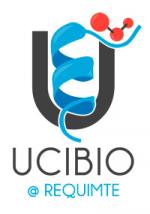15 years on siRNA delivery: Beyond the State-of-the-Art on inorganic nanoparticles for RNAi therapeutics
- Citation:
- 15 years on siRNA delivery: Beyond the State-of-the-Art on inorganic nanoparticles for RNAi therapeutics, Conde, João, Ambrosone Alfredo, Hernandez Yulan, Tian Furong, McCully Mark, Berry {Catherine C. }, Baptista {Pedro Miguel Ribeiro Viana}, Tortiglione Claudia, and {de la Fuente} {Jesus M. } , Nano today, aug, Volume 10, Number 4, p.421–450, (2015)
Abstract:
RNAi has always captivated scientists due to its tremendous power to modulate the phenotype of living organisms. This natural and powerful biological mechanism can now be harnessed to downregulate specific gene expression in diseased cells, opening up endless opportunities. Since most of the conventional siRNA delivery methods are limited by a narrow therapeutic index and significant side and off-target effects, we are now in the dawn of a new age in gene therapy driven by nanotechnology vehicles for RNAi therapeutics. Here, we outlook the {"}do's and dont's{"} of the inorganic RNAi nanomaterials developed in the last 15 years and the different strategies employed are compared and scrutinized, offering important suggestions for the next 15. (C) 2015 Elsevier Ltd. All rights reserved.
Notes:
info:eu-repo/grantAgreement/EC/FP7/239931/EU# FP7-PEOPLE-2013-IOF, project no. 626386 SAF2014-54763-C2-2-R Sem PDF conforme despacho.

